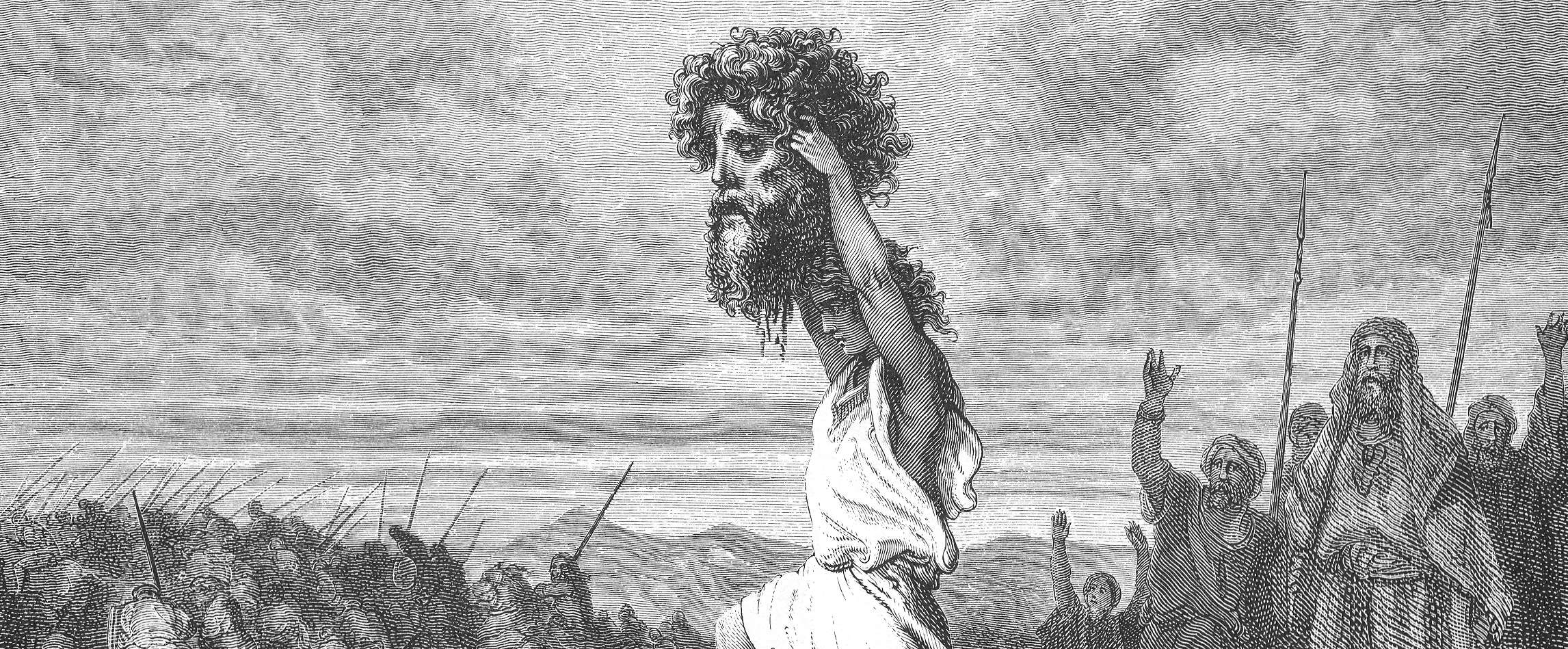David and Goliath
Once settled in the land, Israel became in a real sense a nation. With one exception. While they had land, community and the rule of law, they lacked a visible leader. After the conquests, rule was carried out through a series of judges, mostly with mixed results and only short-lived successes. Eventually the Israelites decided that what they really needed was a king, “like all the nations” (1 Samuel 8:5); much to the chagrin of Samuel, who was the judge at the time.
The first king was Saul, a tall, handsome man who was an utter failure as a king. Even his anointing was problematic: at the ceremony they found him hiding behind the baggage (1 Samuel 10:22). After Saul, however, God chose “a man after his own heart” (1 Sa 13:14), a “ruddy” (which may or may not imply he was ginger-haired) young shepherd, and talented lyrist (the word for someone who plays the lyre) and lyricist (as evidenced by the book of Psalms).
The appointment was not immediate however. David’s introduction to Israel came when he was sent to the front-line of a battle against the Philistines, but only to bring packed lunches to his older brothers, who were doing the real work. Or not, as it turned out. The Philistines had issued a challenge to fight their champion, the giant Goliath, mano-a-mano. A somewhat cheeky request, but one which Israel seemed inclined neither to deny nor to accept. With the result that everyone was essentially sitting around and no doubt glad of the sandwiches.
So David took up a sling and a stone and took up the challenge. The stone sank into Goliath’s forehead and Goliath sank into the ground. A simple victory for quick-thinking and technology? Maybe, but we didn’t see anyone else taking up the challenge. And as for David himself, his rationale was that “the battle is the Lord’s, and he will give all of you into our hands” (1 Sa 17:47).
Was David really a man after God’s own heart? He was a man born, as it were, in battle, and his reign was marked by war. He committed adultery with Bathsheba, the wife of a foreigner. He essentially murdered that same foreigner. His parenting seems suspect: the approaching end of his reign triggered a succession crisis in which his children fought to succeed him. The eldest, Absolom, died as a result, causing David’s famous lament: “O my son Absalom! My son, my son Absalom! If only I had died instead of you–O Absalom, my son, my son!” (2 Samuel 18:33)
Yet he was also a man deeply trusting in, and ultimately faithful to God. A man whose repentance was always whole-hearted. His lament in Psalm 51, where he confesses his adultery, is one of the great prayers of the Bible:
Have mercy on me, O God,
according to your unfailing love;
according to your great compassion
blot out my transgressions.Wash away all my iniquity
and cleanse me from my sin.
For I know my transgressions,
and my sin is always before me.Against you, you only, have I sinned
and done what is evil in your sight;
so you are right in your verdict
and justified when you judge.
Create in me a pure heart, O God,
and renew a steadfast spirit within me.
Do not cast me from your presence
take your Holy Spirit from me.Restore to me the joy of your salvation
and grant me a willing spirit, to sustain me.
Then I will teach transgressors your ways,
so that sinners will turn back to you.You do not delight in sacrifice, or I would bring it;
you do not take pleasure in burnt offerings.
My sacrifice, O God, is a broken spirit;
a broken and contrite heart
you, God, will not despise.May it please you to prosper Zion,
to build up the walls of Jerusalem.
Then you will delight in the sacrifices of the righteous,
in burnt offerings offered whole. (Psalm 51:1-19)
David would remain the great king of Israel. But when he asked the Lord permission to build a temple for him, he was told “When you die and join your ancestors, I will make one of your sons the next king, and I will set up his kingdom. He will build a house for me, and I will let his kingdom rule always.” (2 Samuel 7:12,13)
